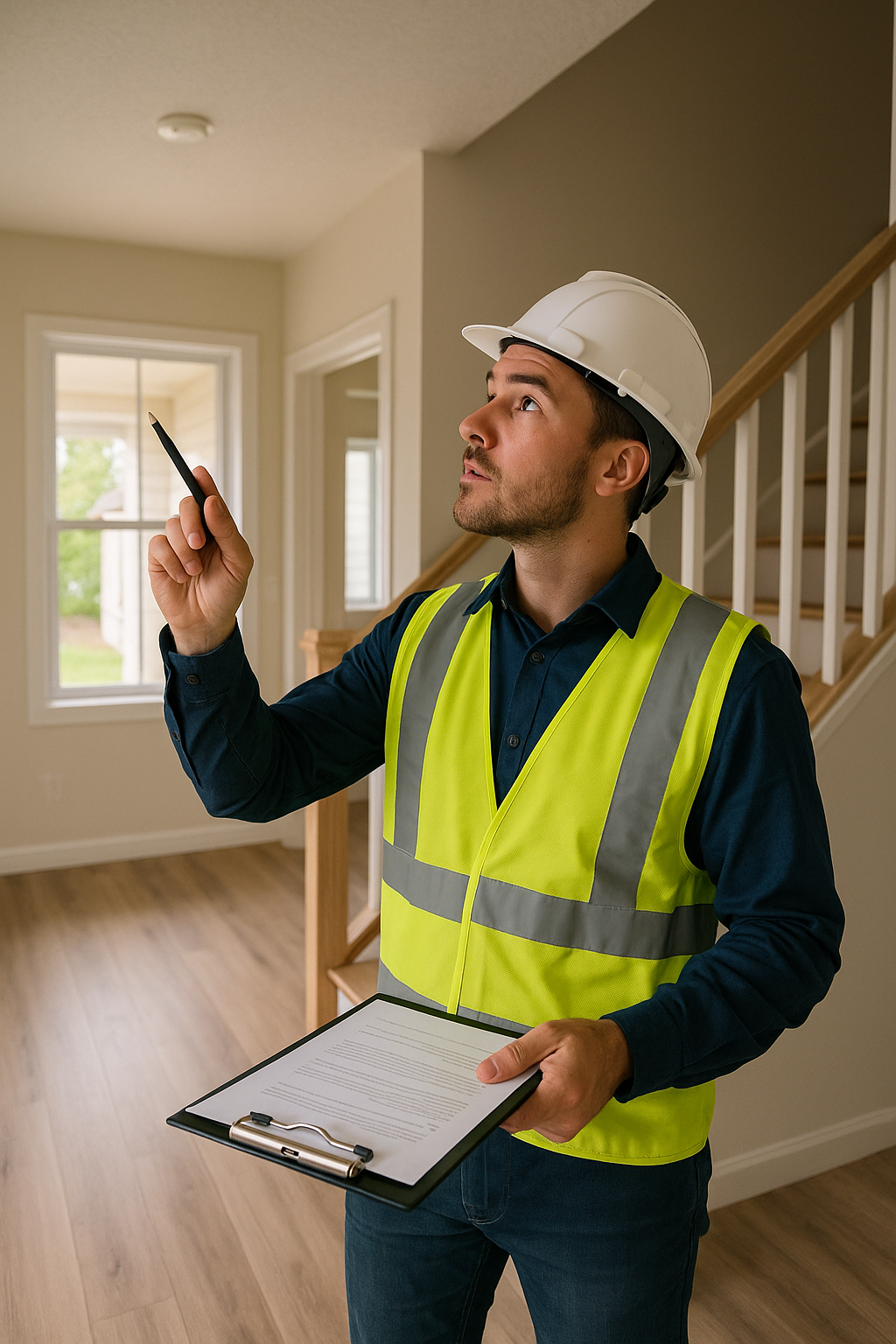A Pre-Delivery Inspection (PDI) is a crucial step for homebuyers in Ontario when purchasing a newly built home or condominium. It is the inspection that takes place just before you take possession of the property, allowing you to ensure that the builder has completed the home or condo according to the agreed-upon specifications, quality standards, and local building codes. Whether you are purchasing a newly built home in Toronto, or an investment property in Vaughan, a PDI is a very important step in the process.
Here are Some Key Details About Pre-Delivery Inspections (PDI) in Ontario:
1. Timing
• The Pre-Delivery Inspection typically occurs a few days or weeks before the closing date or possession date. It’s scheduled once the builder believes the home or condo is ready for the buyer to move in but before the keys are officially handed over.
• In Ontario, builders are required to notify the buyer of the inspection date and must make the property available for the inspection in a reasonable condition.
2. Purpose of the PDI
• The goal of the PDI is to give the buyer a chance to inspect the property for any defects, incomplete work, or issues that may need to be addressed before moving in.
• It helps ensure that the builder has fulfilled all contractual obligations related to the construction of the property.
• The PDI also provides an opportunity to identify any cosmetic or structural issues that need to be fixed.
3. What’s Included in the PDI?
• Visual Inspection: You will walk through the property with the builder or their representative and carefully examine the home or condo for:
o Defects or Damage: Look for any cracks in walls, flooring imperfections, damage to appliances or fixtures, missing tiles, and any issues with doors and windows.
o Cosmetic Issues: Check for issues like paint splatters, stains, scratched floors, or uneven finishes.
o Structural and Functional Issues: Ensure that plumbing, heating, and electrical systems are functioning correctly and that there are no leaks, drafts, or other problems.
• Systems Check: Test appliances, fixtures, heating/cooling systems, water pressure, lighting, and other key systems to ensure they work properly.
• Measuring: In some cases, you might also want to measure spaces or features to ensure they match the specifications in your contract.
4. Documentation and Report
• During the PDI, the buyer and builder will document any issues discovered and create a list of items that need to be repaired or corrected before closing.
• This deficiency list is crucial because it serves as evidence that the builder has agreed to fix these issues before you move in.
• Any problems found during the PDI should be noted in writing, and the builder will often issue a written commitment to complete repairs within a certain timeframe.
5. Your Rights During the PDI
• Right to Request Repairs: If issues are found during the PDI, you have the right to request that they be repaired before taking possession of the property.
• Tarion Warranty Coverage: In Ontario, homes and condos are typically covered by a Tarion Warranty (under the Ontario New Home Warranties Plan Act). If any defects are found that are covered by this warranty (e.g., structural issues, major defects), the builder is required to correct these within a specified period.
o 1-Year Warranty: Covers defects in workmanship and materials.
o 2-Year Warranty: Covers defects in plumbing, electrical, and heating systems.
o 7-Year Warranty: Covers structural defects.
6. What Happens After the PDI?
• Once the PDI is complete and any necessary repairs are noted, you will receive the keys and can take possession of the property (subject to any closing requirements).
• Final Walkthrough: After the builder completes the required repairs, you may be able to request a final walkthrough to ensure that the issues have been addressed.
• If significant issues are not resolved or if you believe the builder hasn’t met the agreed-upon standards, you may have the right to withhold a portion of the payment or pursue further action through the Tarion Warranty or legal means.
7. Benefits of a PDI
• Peace of Mind: The PDI provides peace of mind that your new home or condo is in good condition before you move in. It ensures that any defects or issues are addressed, reducing the chances of unpleasant surprises after you’ve taken possession.
• Better Quality Control: It gives you a chance to ensure that the builder has followed the agreed-upon specifications, leading to a better-quality home.
8. What Happens if You Skip the PDI?
• Skipping the Pre-Delivery Inspection is not recommended, as it’s your last chance to catch any defects or problems before the property is handed over to you. If you do skip the PDI and find issues after moving in, it may be harder to prove that they were caused by the builder rather than occurring during your occupancy.
In Ontario, a Pre-Delivery Inspection (PDI) is a vital step for new home or condo buyers to check the property for defects and ensure it meets the agreed-upon standards before taking possession. The inspection allows buyers in Toronto to identify any issues, document them for repairs, and ensure that their new property is move-in ready. It’s an essential process to protect your investment, and it’s backed by warranty protections through Tarion. Always attend the PDI and carefully inspect the property to make sure everything is as it should be before you finalize the deal.
If you are faced with a PDI in the Toronto or the surrounding region, give Capulli Law LLP a call and we can help guide you through the process.
